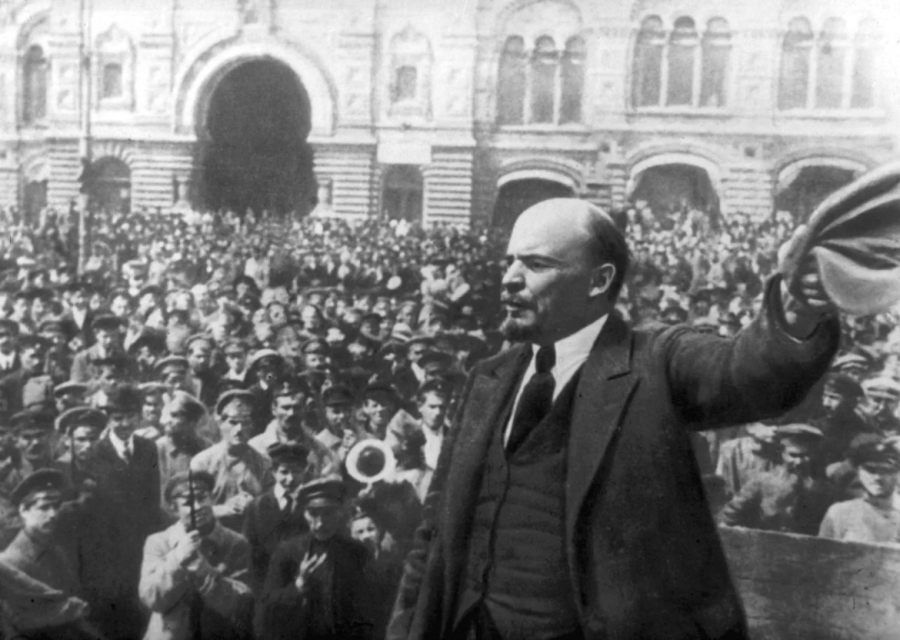Today, January 21st, marks the centenary of the death of Vladimir Ilyich Ulyanov Lenin, the leader of the Bolshevik Party and the architect of the October Revolution in 1917, who was to play a pivotal role in shaping the course of Russia, and those European states unfortunate to fall under the Communist yoke.
While Lenin was celebrated for his role in overthrowing the Tsarist regime – as unpleasant a parasitic institution as has ever been seen – and establishing the first socialist state, an honest and critical examination of his actions reveals a dark side marked by crimes against humanity, political repression, and economic mismanagement.
One of the most glaring crimes associated with Lenin’s leadership is the Red Terror, a brutal campaign initiated by the Bolsheviks to eliminate perceived enemies of the revolution.
The Cheka, the secret police organisation under Lenin’s command, carried out mass arrests, executions, and widespread repression.

The Red Terror targeted not only political opponents but also ordinary citizens who were suspected of being counter-revolutionaries or class enemies.
This ruthless suppression of dissent created an atmosphere of fear and suspicion that permeated Soviet society for decades to come.
Lenin’s policies also led to the Russian Civil War, a devastating conflict that resulted in immense suffering and loss of life.
The war, fought between the Red Army (loyal to the Bolsheviks) and the White Army (composed of various anti-Bolshevik forces), resulted in a humanitarian catastrophe.
Both sides engaged in atrocities, and the civilian population bore the brunt of the violence.
Lenin’s decision to pursue a ruthless military strategy, including the use of the infamous “War Communism” policies, exacerbated the already dire conditions, leading to famine, epidemics, and widespread displacement.
Furthermore, Lenin’s economic policies, particularly the implementation of War Communism, had disastrous consequences for the Russian economy.
The nationalisation of industry and the forced requisition of grain from peasants led to a collapse in agricultural production and widespread famine.
The centralisation of economic power under the state stifled innovation and initiative, contributing to a prolonged economic downturn.
The New Economic Policy (NEP), a pragmatic attempt to reverse the damaging effects of Marxist economics, introduced in 1921, represented a partial retreat from the extreme measures of War Communism, but the damage had already been done.
Lenin’s suppression of political dissent extended to the curtailment of basic civil liberties. The Bolshevik regime under Lenin established a one-party state, suppressing rival political parties and stifling freedom of speech and assembly.
The closure of independent newspapers and the suppression of political opposition created an environment where dissent was not only discouraged but actively punished.
Lenin’s leadership set a precedent for the totalitarian nature of the Soviet state, which continued under his successor, Joseph Stalin, who is generally considered as being even worse than Lenin.
Moreover, Lenin’s attitude towards nationalities within the Russian Empire demonstrated a disregard for self-determination and cultural autonomy.
This disregard for the rights and aspirations of national minorities sowed the seeds for long-standing ethnic tensions within the Soviet Union, culminating in decades of repression and violence.
In assessing Lenin’s crimes, it is essential to recognise the historical context in which he operated.
The tumultuous period following the October Revolution was marked by external threats, internal dissent, and economic challenges.
However, Lenin’s responses to these challenges often prioritised ideological purity over human rights and democratic principles. The ends, in Lenin’s view, justified the means, leading to a legacy of authoritarianism, political repression, and economic hardship.
In conclusion, while Vladimir Ilyich Lenin is celebrated by some as a revolutionary hero who toppled a despotic regime, a critical examination of his actions reveals a darker side marked by crimes against humanity.
The Red Terror, the Russian Civil War, economic mismanagement, suppression of dissent, and disregard for nationalities all contribute to a legacy tarnished by authoritarianism and brutality.
Recognising these flaws is crucial for a nuanced understanding of the Russian Revolution and its aftermath, as well as for assessing the impact of Lenin’s ideas on the course of history.
This era of economic disaster, and of suffering, is however invokes nostalgia to Lenin’s apologists in the west, who still exist albeit in declining numbers.
Apologists for Lenin, still carrying a flame.

Wolfie Smith, leader of the fictional ‘Tooting Popular Front.’
Left wing revolutionary groups tend to be short-lived and embroiled in factionalism – the fictional Tooting Popular Front and the Judean People’s Front (not to be confused the the People’s Front of Judea) are not too far removed from the reality of left-wing politics.
Sewell himself has been a victim of a purge – something that Marxists are somewhat fond of.
____________________________________________________________________________________________________________________________________

Read also: Putin laments the collapse of the Soviet Union as a setback for Russian power
____________________________________________________________________________________________________________________________________

Follow EU Today on social media:
Twitter: @EU_today
@EU_sports
Facebook: https://www.facebook.com/EUtoday.net/
https://www.facebook.com/groups/968799359934046
YouTube: https://www.youtube.com/@eutoday1049












